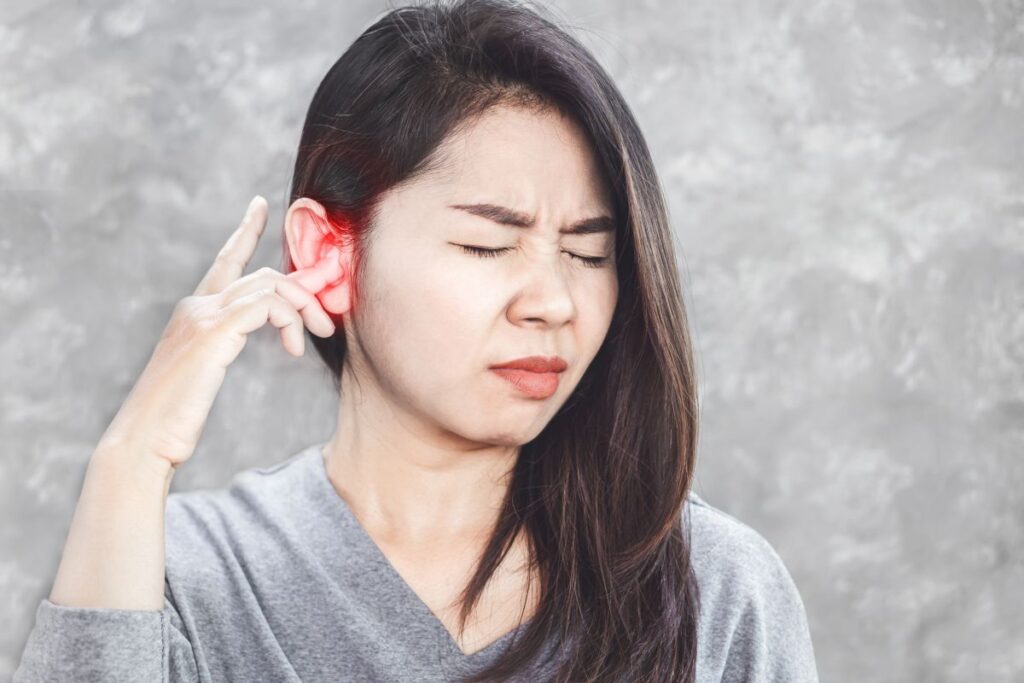The constant ringing in your ears is more than just annoying—it could be a sign of a deeper issue. In the absence of outside noise, millions of people experience tinnitus, which is the way sound is perceived (such as ringing, buzzing, or hissing). If you’re struggling with tinnitus, understanding its causes and treatment options is key to managing it effectively.
What is Tinnitus?
Tinnitus is the perception of sounds that don’t have an external source, such as ringing, buzzing, or hissing in the ears. One or both ears can be affected by it, and its intensity can range from a minor annoyance to constant, severe noise that interferes with day-to-day activities. While tinnitus itself isn’t a disease, it can be a symptom of various underlying conditions, including ear infections, exposure to loud noise, earwax buildup, and even stress.
Symptoms of Tinnitus
● Ringing, buzzing, or hissing in the ears: The most common symptom of tinnitus.
● Constant or intermittent sound: The noise may be continuous or come and go.
● Hearing loss: Some people with tinnitus experience some level of hearing loss along with the condition.
● Difficulty concentrating: The constant noise can make it hard to focus or sleep.
Red Flags:
● Sudden onset of tinnitus, especially if it’s associated with hearing loss or dizziness.
● Tinnitus that doesn’t go away: persistent tinnitus lasting for weeks or months may require medical attention.
● Tinnitus after exposure to loud noise: If you’ve been exposed to loud environments, your tinnitus may be related to noise-induced hearing damage.
How Doctors Will Approach Tinnitus:
A thorough evaluation, including a hearing test, will be performed by an ENT specialist to find out whether there is any related hearing loss. To check your ear for infections or blockages, the doctor might also use an otoscope. To rule out major medical diseases like tumors or circulation issues, CT scans or MRIs may be suggested if the explanation isn’t immediately obvious.
Treatment Options for Tinnitus:
● Sound therapy: Listening to calming sounds can help mask the ringing in the ear.
● Cognitive behavioural therapy (CBT): This kind of treatment could help you control your emotional reaction to tinnitus, particularly if it’s leading to your anxiety or despair.
● Medications: Antidepressants and anxiety medications, for example, can lower the intensity of tinnitus in certain situations.
● Hearing aids: For people with hearing loss, hearing aids can help amplify external sounds and reduce the perception of tinnitus.
FAQ :
Can tinnitus resolve itself?
If tinnitus is caused by temporary conditions like an ear infection or loud noise, it will go away on its own. But if it is constant, then it may require treatment.
Can tinnitus be cured?
While there’s no cure for tinnitus, treatments can help reduce the severity and make it more manageable.
What causes tinnitus?
Ear infections, exposure to loud noise, earwax buildup, and certain medications. In some cases, the cause is unknown.
Can stress make tinnitus worse?
Yes, stress and anxiety can worsen tinnitus. Managing stress through relaxation techniques can help alleviate symptoms.
How HealthPil Can Help:
HealthPil connects you with ENT specialists who can help diagnose the underlying cause of your tinnitus and recommend effective treatments. Whether you need a hearing test, sound therapy, or advice on managing stress, our doctors are here to help.
Disclaimer:
This article is for informational purposes only and should not replace professional medical advice. Always consult an ENT specialist if you experience tinnitus or other ear-related symptoms. HealthPil connects you with expert doctors who can provide personalised care.

